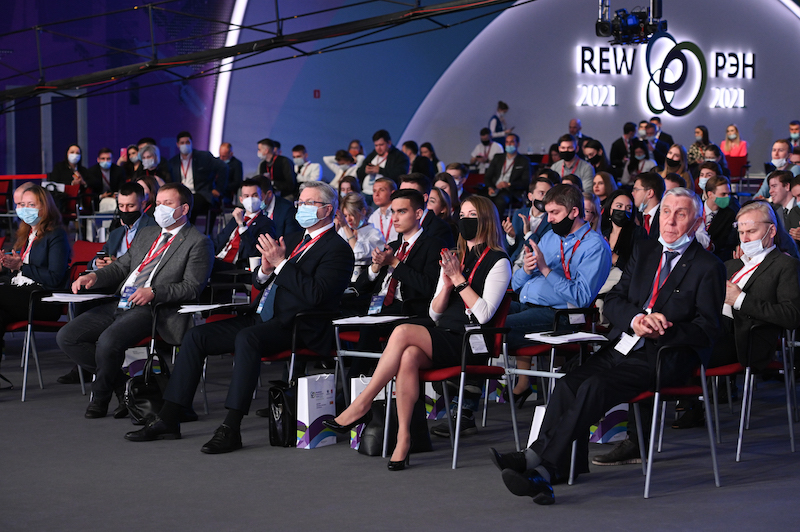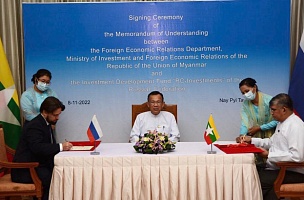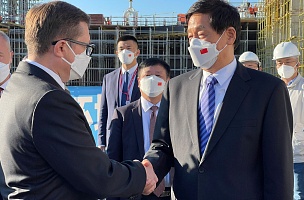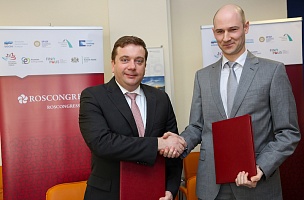KEY CONCLUSIONS
Youth projects which exist as a result of practice-based university programmes offer excellent development potential
«The presentations, along with the majority of talks given here, are excellent and of a high quality. A wide range of topics have been covered. What’s more, we have not only looked at technological projects, but social ones as well. Most of the projects reviewed by the teams go into their topics fairly deeply,» Yury Kulikov, Honoured Employee, SO UPS.
«We have heard ideas that are genuinely innovative and game-changing. These are not only related to technical and technological aspects, but social, economic, and humanitarian ones too, which are very important. It struck me that many ideas are connected, so perhaps the project teams could later join forces, fine-tune their ideas, and put forward some new, integrated projects,» Anastasia Skakun, Acting Dean of the Faculty of Electrical Engineering and Automation, LETI St. Petersburg Electrotechnical University.
«It is fantastic that practical approaches are being increasingly adopted at universities, because this is exactly the kind of meta skill which is vital to demonstrate your professional abilities most vividly,» Nikolay Toivanen, Vice-Rector for Strategic Development, St. Petersburg State University of Economics.
«Many of the projects have the stated aim of achieving sustainable development. And I would say that it is clear that a range of projects could be applied in the implementation of the energy strategy, and subsequently, in the implementation of the Russian Federation’s low-carbon development strategy, which is currently being drafted,» Nadezhda Uledova, Director of Strategic Planning and Partnership Department, International Sustainable Energy Development Centre under the auspices of UNESCO.
Specialists in the fuel and energy sector can share their knowledge with the public, particularly with socially vulnerable people
«What global problem is the UN addressing today? If you answered ‘eradicating social inequality’, you’d be right. The thing is, as professionals in the fuel and energy sector, we possess certain knowledge which is specific to the work we do, and don’t think too much of it. But the fact is, we can share this knowledge with society, and more specifically, with socially vulnerable young people,» team from the Young Specialists’ Council of the Sverdlovsk Regional branch of T Plus, which developed a housing and utilities education programme entitled Communal Jungles.
PROBLEMS
An insufficient number of young specialists in the fuel and energy sector, along with a lack of career guidance tools and new production solutions
«The problem we faced was a lack of young specialists in the energy sector, so the aim of our undertaking was to raise awareness of the speciality among school pupils, and to instil an image of the profession. A number of objectives were set, such as popularizing engineering as a whole, teaching particular skills to school pupils, and immersing them in the history of the energy sector in an interesting way. These are important, as meeting the needs of specialists will lead to an increased number of school leavers choosing to study at universities and receive a high-quality education. A gamification approach to solving the issue will ensure that information is absorbed to the greatest extent possible. It also makes it possible to employ this project at schools or further education centres,» team of developers from Nizhnevartovsk State University behind the EvoEnergy career-guidance based board game.
«Most competitions taking place today focus on areas of technical expertise. There are very few competitions for humanitarian specialists like us. And centres such as MGIMO’s International Institute for Energy Policy and Diplomacy or MGIMO’s environmental centre tend to be one of a kind in Russia. Very few young people interested in working in the fuel and energy sector genuinely understand what’s involved. After all, we cannot control a system which we have not seen in its entirety,» team from MGIMO University involved in the School for International Youth Cooperation in Energy project.
SOLUTIONS
Supporting and promoting youth projects which have the potential to be applied in the fuel and energy sector
«Essentially, our project involves replacing pumping stations with an ultra-high molecular weight polyethylene shaft — so-called artificial muscles. <...> We plan for these to be introduced in the industry by 2023. We have endeavoured to account for all risks and develop measures to prevent them from occurring. <...> The main area of application remains oil production. However, we have also identified alternative applications for these muscles in areas of low potential heat dissipation,» team behind the Artificial Muscles project from Tatneft.
«The Russian Federation’s 2035 energy strategy outlines the need for a structural diversification of the electric power industry, including modernizing inefficient diesel generation facilities in isolated and remote regions. We can see that one of the solutions could possibly be the construction of autonomous hybrid electric power stations which incorporate power storage units and renewable energy sources. These could support nominally efficient diesel-based operation,» team member from LETI St Petersburg Electrotechnical University.
«The platform is aimed at supporting students, businesses, and universities. It will manifest itself in drawing students to energy-themed events, and special socioeconomic projects will not go unnoticed. Businesses will be able to harness these projects and benefit accordingly, i.e., through creating a personnel reserve, developing new technologies, and much more,» team behind the Student Information Platform from St. Petersburg State University of Economics.
By following ESG principles, fuel and energy companies could further reduce their carbon footprint
«The scale of the natural disaster we are facing led to the idea of creating our very own biodegradable jerrycans in-house. Our team developed the technology required to produce the biodegradable jerrycans, with work done on various additives and technologies for biodegradation. <...> Research was done on all forms of engine and transmission hydraulic oil, on diesel fuel, on climate control systems, and on the effects of fungus. Basically, we simulated the future and saw how long it would take for the jerrycan to decompose. The result was seven years — against the 400 years for usual jerrycans,» Gazpromneft representative behind the Biodegradable Jerrycan project.
For more information, visit the Roscongress Foundation’s Information and Analytical System at roscongress.org/en.






